Ice and Fire [2]
Albedo One #18, January 1999The Gardens of Tantalus and Other Delusions, Borgo Press, March 2008
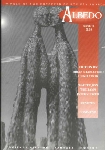

Previous: H's |
Back to: Short Stories |
Next: J's |
Ice and Fire [2]Albedo One #18, January 1999The Gardens of Tantalus and Other Delusions, Borgo Press, March 2008 |


|
The Immortals of Atlantis [5]disLocations ed. Ian Whates, Newcon Press, July 2007The Innsmouth Heritage and Other Sequels, Borgo Press, January 2009 The Year's Best Science Fiction: Twenty-Fifth Annual Collection ed. Gardner Dozois, St. Martin's, 2008 |
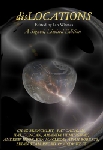
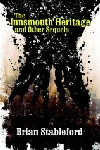

|
Inconstancy [4]Impulse #12, February 1967
|
 |
The Incredible Whelk [1]Ludd's Mill (fnz) #16/17, 1980In the Flesh and Other Tales of the Biotech Revolution, Borgo Press, March 2009 |

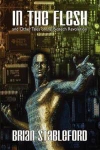
|
The Incubus of the Rose [7]Weird Tales #320, Summer 2000The Wayward Muse, Black Coat Press 2005 |


|
Inherit the Earth [26]Analog July 1995The Great Chain of Being and Other Tales of the Biotech Revolution, Borgo Press, August 2009 Expanded into Inherit the Earth
|
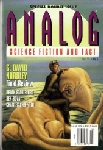


|
Innocent Blood [8]Tales of the Wandering Jew ed. Brian Stableford, Dedalus, 1991Sheena & Other Gothic Tales, Immanion Press, May 2006 |


|
The Innsmouth Heritage [8]Necronomicon Press, 1992Shadows Over Innsmouth ed. Steven Jones, Fedogan & Bremer, 1994; Gollancz, 1997 Translated into German as: Das Innsmouth-Syndrom in Der Cthulhu-Mythos 1976-2002 ed. Frank Festa, Festa, 2003 The Innsmouth Heritage and Other Sequels, Borgo Press, January 2009
|


|
Inside Out [8]Asimov's Science Fiction March 1997Changelings and Other Metamorphic Tales, Borgo Press, March 2009
|
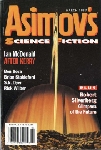
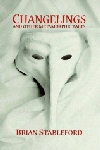
|
In the Flesh [8]Future Histories ed. Stephen McClelland, Horizon House, June 1997Infinity Plus website posted July 2000 In the Flesh and Other Tales of the Biotech Revolution, Borgo Press, March 2009 This story is online at Infinity + |

|
The Invertebrate Man [10]Interzone #39, September 1990Sexual Chemistry, Simon & Schuster (UK), 1991 (revised)
|
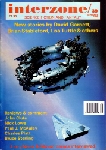

|
The Invisible Worm [11]The Magazine of Fantasy & Science Fiction September 1991Translated into Italian by Daniela Rossi as: 'Il tarlo invisibile' in Millemondiestate, Mondadori, 1992 Translated into Greman by T.H. Ziegler as: 'Der Unsichtbare Wurm' in Invasoren ed. Wolfgang Jeschke, Heyne, 1994 Designer Genes: Tales of the Biotech Revolution, Five Star, 2004
|
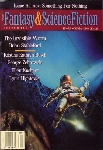
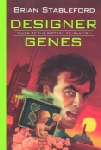
|
 |
The Brian Stableford Website |
 |